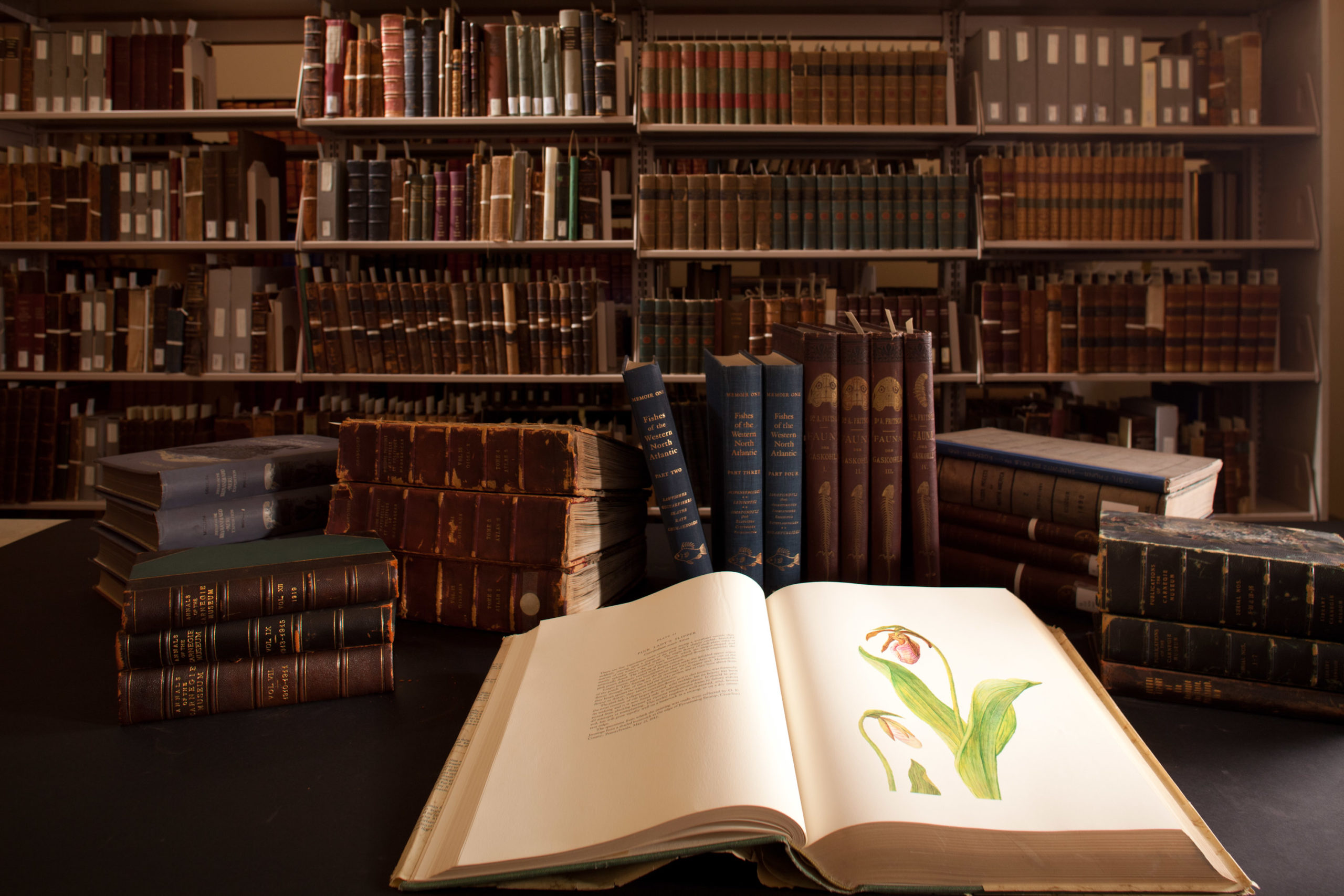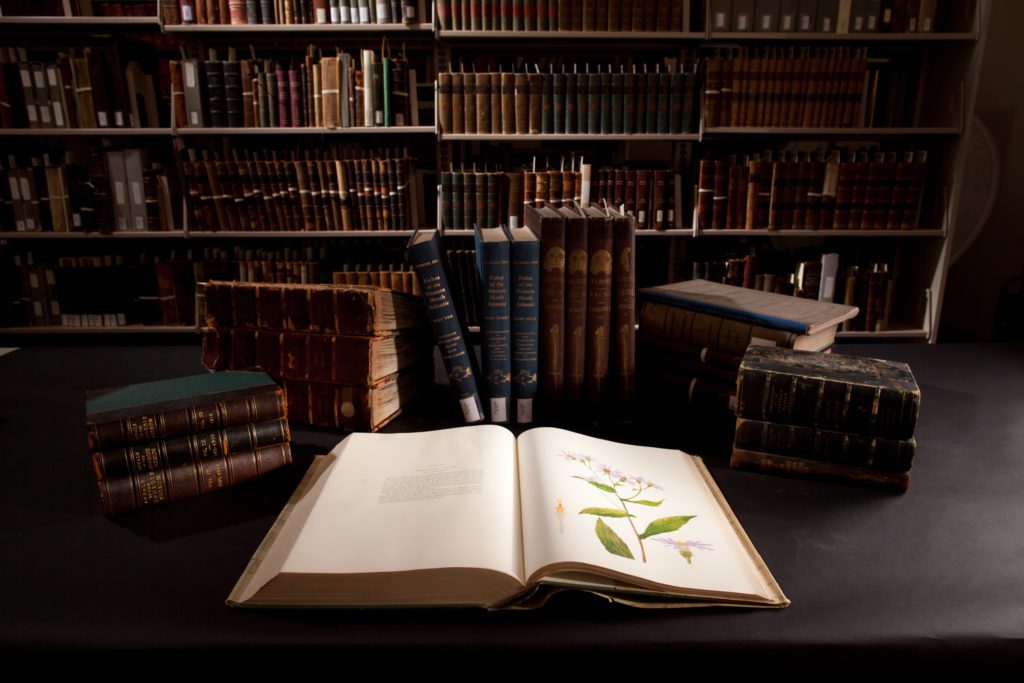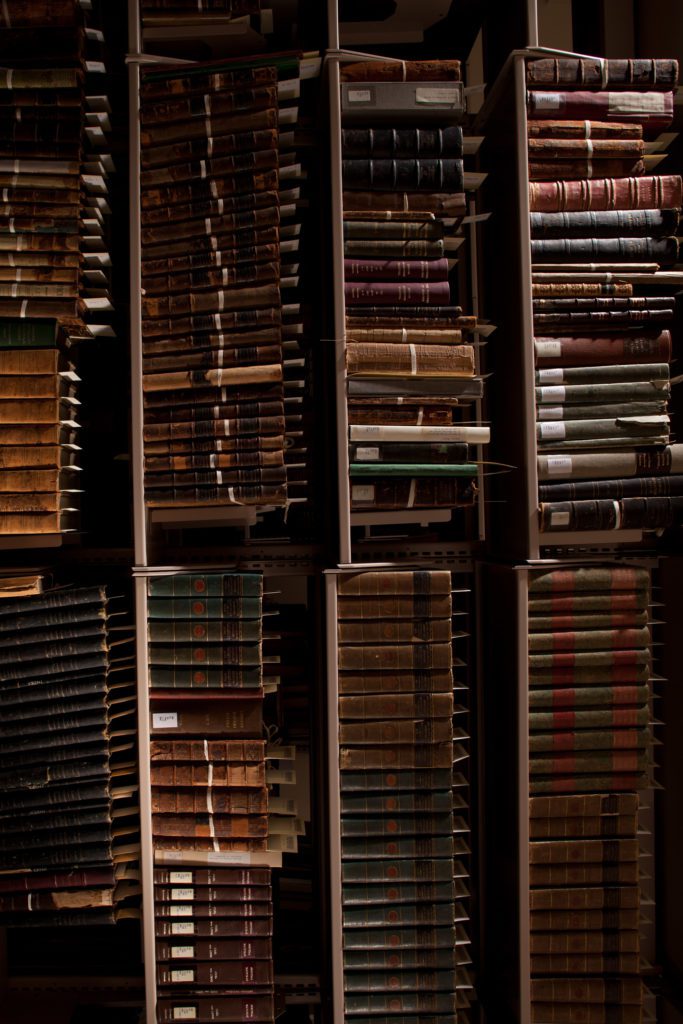
Museum Library
The Library of Carnegie Museum of Natural History is particularly strong in scientific periodicals. Many periodicals are received through the museum’s publication exchange program which distributes Annals of Carnegie Museum and Bulletin of Carnegie Museum of Natural History to other museums and libraries. The library’s strengths reflect the scientific sections of the museum:
- Amphibians & Reptiles
- Anthropology
- Birds
- Botany
- Invertebrate Paleontology
- Invertebrate Zoology
- Mammals
- Minerals
- Mollusks
- Powdermill Nature Reserve
- Vertebrate Paleontology
While the library’s primary users are the staff of the museum and their professional colleagues worldwide, the collection is available for onsite use by the public. Photocopies may also be requested through interlibrary loan; please provide full citations with information on author, title, publisher, date of publication, and cost. The library maintains various institutional records and also serves as the starting point for research into the archival collections held by the scientific sections.
Using the Library
Books and journals in the Museum Library collection do not circulate, and must be used in the library. For questions concerning use of the library collection, please contact the Library Manager.
The Museum Library’s main reading room is in the Oakland complex at 4400 Forbes Avenue in Pittsburgh, Pennsylvania. However, the library collections are distributed throughout the main building and the museum’s offsite annexes. Please indicate the material in which you are interested so that we have time to retrieve it for your appointment.
Interlibrary Loans
To request a photocopy of something held in the Museum Library collection, contact your local library’s interlibrary loan department and they will make the request on your behalf. If you are not associated with a particular library, you may contact the Museum Library directly.
Please be sure to give the complete citation, including name of the journal, name of the article, authors of the article, page numbers, volume number, and date of the journal. Please note that we can only fill requests for specific articles, not general information.
Online Search
To find out whether the Museum Library owns a particular title, search the online catalogue at Carnegie Library of Pittsburgh. Carnegie Museum of Natural History holdings are listed as CMNH – [name of the departmental library]. If you want to limit your search to the holdings of the Museum Library, please select CMNH from the “Look in the following location” dropdown list
Institutional Archives
Mission
The mission of the Archives of Carnegie Museum of Natural History is to identify, intellectually and physically organize, preserve, and provide responsible access to records of enduring value, which were created by museum staff and others associated with the museum, and provide essential evidence of the development of collections and research since 1896.
Archival collections do not circulate and must be used in the Museum Library, with the exception of digitized content that is made available through our website.
Introduction to Archives
Institutional recordkeeping systems sustain the museum’s institutional memory by identifying, capturing, and preserving information about the museum’s collections and evidence of its research activities. Records having lasting value to the institution are considered archival and are worthy of long-term preservation and maintenance for continuing access.
Definitions
Institutional records are those records created or received as a result of the official activities of Carnegie Museum of Natural History. Archival institutional records of enduring value include, but are not limited to, incoming and outgoing correspondence, moving images (films), and photographic records in all formats. Specific examples of archival collection records can include field notes, donor correspondence, exhibit records, and other evidence of acquisition. Records can exist in paper form, as photographs or digital images, audio files, or as digital data. Museum staff, board members, and research associates are urged to consider the museum archives as a repository for their personal correspondence and papers as they relate to museum-connected activities. The museum’s archives also serve as the repository for other materials relating to the history of the museum.


